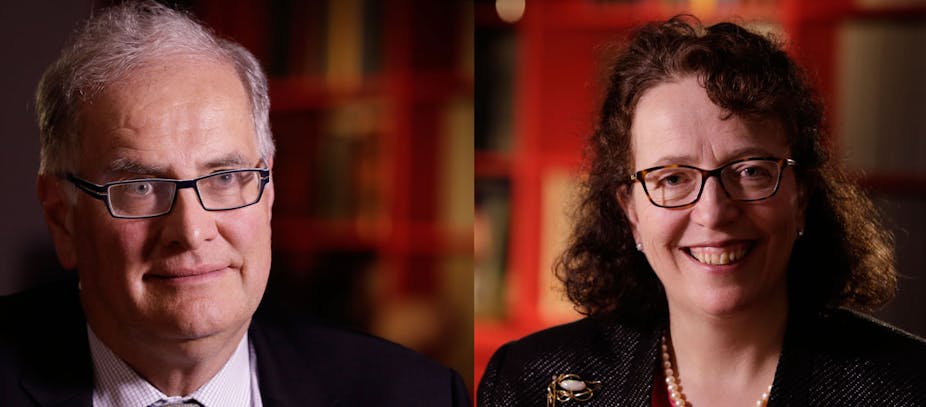Two researchers have shared the 2014 Prime Minister’s Prize for Science for their long-standing partnership on cracking the genetics of epilepsy.
Sam Berkovic and Ingrid Scheffer, from the University of Melbourne, have received many separate awards and prizes for their work – but this is the first time they have been recognised together.
They received the Prime Minister’s top prize of A$300,000 at an awards ceremony at Parliament House in Canberra this evening.
The award recognises their work on the genetic cause of many epilepsies which has led to better targeted research, diagnosis, management and treatment for different forms of the condition.
“So this is the first award we can enjoy together,” the pair said in an article for The Conversation.
“We are particularly pleased that it recognises clinical research which is a passion for both of us and is essential in taking discoveries in back to the patient, and for understanding unsolved clinical problems with the basic science tools now available to us and our collaborators.”
Epilepsy is a condition that could affect up to 3% of the population at any time and Professor Berkovic said the traditional view was that it was acquired through some head injury or other event.
“In most cases the cause was quite unknown,” he said. “That was bad for helping people because you just couldn’t give them a good explanation.”
Through working in the United States, Professor Berkovic developed an interest in research on twins, especially on cases where identical twins both suffered with epilepsy. This interest in twins continued when he returned to Australia and joined up with then-PhD candidate Ingrid Scheffer. They also started looking at large families where several members were known to be prone to epilepsy.
Their work eventually led to finding a genetic link to epilepsy and that changed the way the condition is now managed in many patients. With the help of others they have tracked down more than half of the 30 or so genes directly linked with forms of epilepsy.
The pair continue to work together on epilepsy, although come at it from different approaches, which Professor Scheffer said helps their partnership.
“Sam is an adult epileptologist, me as a paediatric epileptologist – we work together, develop new experiments together [and] ideas,” she said. “Our output is greater than the sum of its parts.”
Other prizewinners
The Malcolm McIntosh Prize for Physical Scientist of the Year was awarded to Matthew Hill from CSIRO for his work in absorbent nanomaterials, while Ryan Lister from UWS received the Frank Fenner Prize for Life Scientist of the Year for research into the epigenome.
Seacliff Primary School science teacher Brian Schiller received the award for Excellence in Science Teaching in Primary Schools for introducing student-initiated investigations to the classroom.
Melrose High School science teacher Geoff McNamara received the award for Excellence in Science Teaching in Secondary Schools for fostering a learning-rich environment for his students, and for arranging science field trips and regular visits from practising scientists to his classroom.
Hear from the 2014 prizewinners:
Prime Minister’s Prize for Science: Professors Ingrid Scheffer and Samuel Berkovic
Frank Fenner Prize for Life Scientist of the Year: Professor Ryan Lister
Malcolm McIntosh Prize for Physical Scientist of the Year: Dr Matthew Hill

